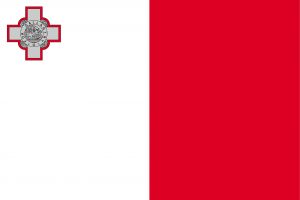Language/Maltese/Grammar/Gender-and-Plurals
| ◀️ Questions — Previous Lesson | Next Lesson — Personal Pronouns ▶️ |
Maltese is a Semitic language spoken by the Maltese people on the islands of Malta in the central Mediterranean. Influenced by many languages throughout its history, including Arabic, Italian, and English, Maltese is rich and unique. In this lesson, we will discuss the gender of nouns and how to form plurals in Maltese.
Gender of Nouns in Maltese[edit | edit source]
In Maltese, every noun has a gender, either masculine or feminine. The gender of a noun often influences its article and adjective forms, and is an essential part of mastering Maltese grammar.
Here are some general rules for determining the gender of nouns in Maltese:
- Nouns referring to males or male animals are usually masculine, e.g., raġel (man), kelb (dog).
- Nouns referring to females or female animals are usually feminine, e.g., mara (woman), qattusa (cat).
- Nouns ending in -a are typically feminine, e.g., sliema (peace), klinika (clinic).
- Nouns ending in -u or other consonants are generally masculine.
There are exceptions, however, and some nouns must be memorized individually.
Examples of Gender Nouns[edit | edit source]
| Maltese | Pronunciation | English |
|---|---|---|
| raġel | ra-jel | man |
| mara | ma-ra | woman |
| kelb | kelb | dog |
| qattusa | qat-tu-sa | cat |
| sliema | sli-e-ma | peace |
| klinika | kli-ni-ka | clinic |
| kitabu | ki-ta-bu | book |
| daru | da-ru | house |
| ħanut | ħa-nut | shop |
| miċrobus | miċ-ro-bus | minibus |
Plurals of Nouns[edit | edit source]
Pluralization in Maltese varies and can be complex. Most commonly, masculine nouns end in -i, while feminine nouns end in -iet. Learning each noun's plural form is necessary due to the numerous exceptions.
Examples of Plural Nouns[edit | edit source]
| Singular | Plural |
|---|---|
| raġel (man) | irġiel (men) |
| mara (woman) | nisa (women) |
| kelb (dog) | klieb (dogs) |
| qattusa (cat) | qtates (cats) |
| ktieb (book) | kotba (books) |
| dar (house) | dariet (houses) |
| ktieb (book) again | kotba (books) |
| zmien (time) | żminijiet (times) |
As demonstrated, plural forms in Maltese are not straightforward and require practice to master.
Pronouns in Maltese[edit | edit source]
Pronouns are critical in Maltese as they replace nouns in sentences, encompassing personal, possessive, and demonstrative forms.
Personal Pronouns[edit | edit source]
Maltese personal pronouns vary by person and gender, with specific forms for masculine and feminine contexts.
| English | Maltese (masculine) | Maltese (feminine) |
|---|---|---|
| I | jien | jien |
| You (singular) | int | inti |
| He | hu | - |
| She | - | hi |
| It | dan (masc.) / danja (fem.) | - |
| We | aħna | aħna |
| You (plural) | intom | intom |
| They (masculine) | huma | - |
| They (feminine) | - | hin |
The third-person singular pronouns (he/she/it) depend on the gender of the noun they refer to.
Examples include:
- Jien nitħobb is-siġra. (I love the tree.)
- Int ser tagħmel xogħol tajjeb. (You will do a good job.)
- Huwa qed iġib il-ballun għall-logħba. (He is bringing the ball for the game.)
- Hi tixtieq tkellem miegħi. (She wants to talk with me.)
Possessive Pronouns[edit | edit source]
Possessive pronouns in Maltese also agree in gender and number with the nouns they refer to.
| English | Maltese (common) |
|---|---|
| my | tiegħi |
| your (singular) | tiegħek |
| his/her | tiegħu/tiegħha |
| our | tagħna |
| your (plural) | tagħkom |
| their | tagħhom |
Examples:
- Din hija id-dar tiegħi. (This is my house.)
- Il-karozza tiegħek tinsab barra. (Your car is outside.)
- Il-kotba tagħhom huma fuq il-mejda. (Their books are on the table.)
Demonstrative Pronouns[edit | edit source]
Demonstrative pronouns in Maltese point to specific nouns and vary by gender and number.
| English | Maltese (masculine) | Maltese (feminine) |
|---|---|---|
| this | dan | din |
| that | dak | dik |
| these | dawn | dawn |
| those | dawk | dawk |
Other Lessons[edit | edit source]
- Adjectives
- Give your Opinion
- 0 to A1 Course
- Questions
- Definite Articles in Maltese
- Comparatives and Superlatives
- Basic Maltese Phrases
- Plurals
- Past Tense
Sources[edit | edit source]
- Maltese language - Wikipedia
- English Translation of “maltese” | Collins Italian-English Dictionary
- Comprehension, Production and Processing of Maltese Plurals in ...
| ◀️ Questions — Previous Lesson | Next Lesson — Personal Pronouns ▶️ |


